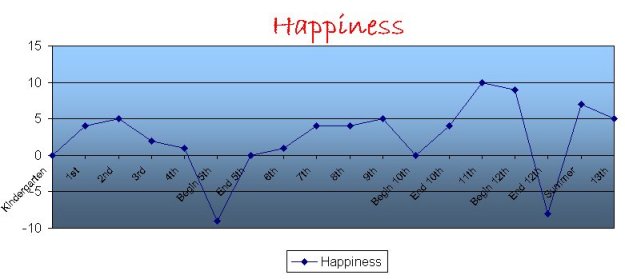
We get into ruts for all kinds of reasons – busy schedules to extremes like natural disasters. Sometimes the way we think about things can help us get out of a rut. I want to consider the the differences between the way we look at things in the West and the way people in the East look at the world, and then consider how that may help some of us in the West get out of a rut that we’re in.
Transactional View
I’m always interested in seeing and learning from how other people deal with and overcome adversity in their lives. This discussion came up again recently as I saw the news coverage about the devastating effects of Hurricane Sandy in New York and New Jersey. Of course, it’s natural to feel devastated after something as monumental as this, but I kept hearing over and over again that people’s lives would never be the same.
In the West, we tend to have a transactional view of life. This means that we see life more as a linear path. Each time something happens we see it as a “transaction” in our life – something that increases or decreases our quality of life and our happiness.
I took a class once that had me plot my happiness over the course of my life. Then in class we described each cusp or turning point in the graph. The conclusion of everyone was that most cusps were based on friendships or loves or deaths of people. Barely any of them had to do with grades or getting a new car, or anything like that. The point was supposed to be that many of the things we worry about on a day-to-day basis really aren’t that important in the overall scheme of our lives. Here’s the chart I made:
While I think that this understanding is important, and can also help us get out of certain ruts, it only tells part of the story. Yes, it’s important to realize that the small things we stress about aren’t a big deal, but we all also deal with these major life events. We’ve all suffered in some way or another, whether it’s through a divorce, a natural disaster, or the death of a loved one. The next step is understanding that even these do not have as large of an impact on our life as we often believe. I’ve already written about the ways that we tend to have a set-point for our happiness, and bounce back to this from major highs and lows, but there’s an entirely different way to see the world from this linear perspective.
A Cyclical View
People from East Asia and the Indian subcontinent tend to see the world in a very different way than Westerners, and this has major implications for how we think about things like knowledge and ethics. Experimental philosophy has only in the past decade started to truly investigate some of these differences, with interesting results.
“Bob has a friend, Jill, who has driven a Buick for many years. Bob therefore thinks that Jill drives an American car. He is not aware, however, that her Buick has recently been stolen; and he is also not aware that Jill has replaced it with a Pontiac, which is a different kind of American car. Does Bob really know that Jill drives an American car, or does he only believe it?” – Jonathan Weinberg, Shaun Nichols, Stephen Stitch ‘Normativity and Epistemic Intuitions’ in Philosophical Topics:
Their results showed that easterners answered that Bob really knows this, while westerners thought that he merely believed it. In being presented with the same scenario, different world views lead us to interpret the scenario in completely different ways!
One of the prominent ways of seeing the world in the east, which is echoed in much of it’s philosophy and religion, is that things are cyclical. Sometimes this is more metaphysical in beliefs such as karma, but it can also be applied more literally to our every day lives. Think of life like a bicycle wheel:
Good and bad, happiness and sadness, joy and tragedy all come and go in our lives. We can’t escape the bad any more than we can escape the good.
Getting Out of a Rut
I have always tended to think of life like a roller coaster – much like the chart I created above. At first I thought this was very similar to the to the eastern cyclical viewpoint, until LKAwesome pointed out to me that in a roller coaster view of life there are no limits on the ups and downs and, ultimately, as I discussed, the turning points are still transactional. In a cyclical view, the good is always around the corner when we’re down. At the same time, when we’re up, we always have to be aware that the bad isn’t lurking far off.
Sometimes simply changing the way we think about the world can allow us to make the changes that are important. Instead of feeling overwhelmed and like the world is against us, we can see our tragedy as a part of the natural order of things. Perhaps a hurricane has destroyed many or all of our worldly possessions. We’re down right now. But things will get better. Don’t dwell on the negative. Dont’ feel sorry yourself. Don’t feel defeated. See this as simply another arc on the wheel of life. External happenings come and go. What’s important is the center of the wheel – who we are and how we react – that is what can stay the same no matter what happens externally.
The good is coming.
But sometimes we have to be open to letting it in.



Being the optimist, I believe in a spiral or conical view of history. There are cyclical patterns but they are progressing towards something greater, I hope.